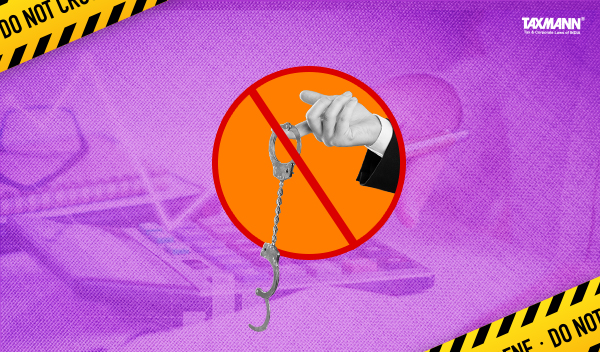Penalty Equivalent to Tax Can’t Be Levied u/s 129 if Machinery Was Transported from Port to Factory After Customs Clearance
- Blog|News|GST & Customs|
- 2 Min Read
- By Taxmann
- |
- Last Updated on 5 July, 2024

Case Details: Fabricship (P.) Ltd. v. Union of India - [2024] 164 taxmann.com 80 (Bombay)
Judiciary and Counsel Details
-
- K.R. Shriram & Jitendra Jain, JJ.
- Ishaan Patkar & Alaksha for the Petitioner.
- Anjani Kumar Singh, D.P. Singh, Ms S.D. Vyas, Addl. G.P., M.M. Pable AGP for the Respondent.
Facts of the Case
The petitioner imported machinery from China under EPCG scheme and arranged transport to its own factory. The vehicle in which machinery was being transported was intercepted in Maharashtra and it was found that e-way bill did not accompany vehicle. The department levied penalty under Section 129(1) of CGST Act, 2017 equivalent to tax applicable on value of machinery. The petitioner filed writ petition against the levy of penalty and contended that there would be no GST liability when goods are transported by an importer to his own factory.
High Court Held
The Honorable High Court noted that the activity of transport of machinery from port to petitioner’s own factory would not fall within Section 7 which deals with scope of supply. In the instant case, when the machinery was being transported to petitioner’s own factory after Customs clearance, there would be no tax payable under the GST Act. Therefore, the first limb of Section 129(1)(a) which provides for penalty equal to one hundred per cent of tax payable could not be invoked in instant case.
Moreover, the second limb of Section 129(1)(a) would be applicable which provides penalty equal to two per cent of value of goods or 25,000 whichever is less in case of exempted goods. In the instant case, two per cent of value of goods is more than Rs.25,000 and therefore, as per Section 129(1)(a) penalty which could be levied would be Rs.25,000 because it is lesser of two amounts. Thus, it was held that the penalty of Rs.25,000 would be levied and writ petition was disposed of.
Disclaimer: The content/information published on the website is only for general information of the user and shall not be construed as legal advice. While the Taxmann has exercised reasonable efforts to ensure the veracity of information/content published, Taxmann shall be under no liability in any manner whatsoever for incorrect information, if any.

Taxmann Publications has a dedicated in-house Research & Editorial Team. This team consists of a team of Chartered Accountants, Company Secretaries, and Lawyers. This team works under the guidance and supervision of editor-in-chief Mr Rakesh Bhargava.
The Research and Editorial Team is responsible for developing reliable and accurate content for the readers. The team follows the six-sigma approach to achieve the benchmark of zero error in its publications and research platforms. The team ensures that the following publication guidelines are thoroughly followed while developing the content:
- The statutory material is obtained only from the authorized and reliable sources
- All the latest developments in the judicial and legislative fields are covered
- Prepare the analytical write-ups on current, controversial, and important issues to help the readers to understand the concept and its implications
- Every content published by Taxmann is complete, accurate and lucid
- All evidence-based statements are supported with proper reference to Section, Circular No., Notification No. or citations
- The golden rules of grammar, style and consistency are thoroughly followed
- Font and size that’s easy to read and remain consistent across all imprint and digital publications are applied



 CA | CS | CMA
CA | CS | CMA
